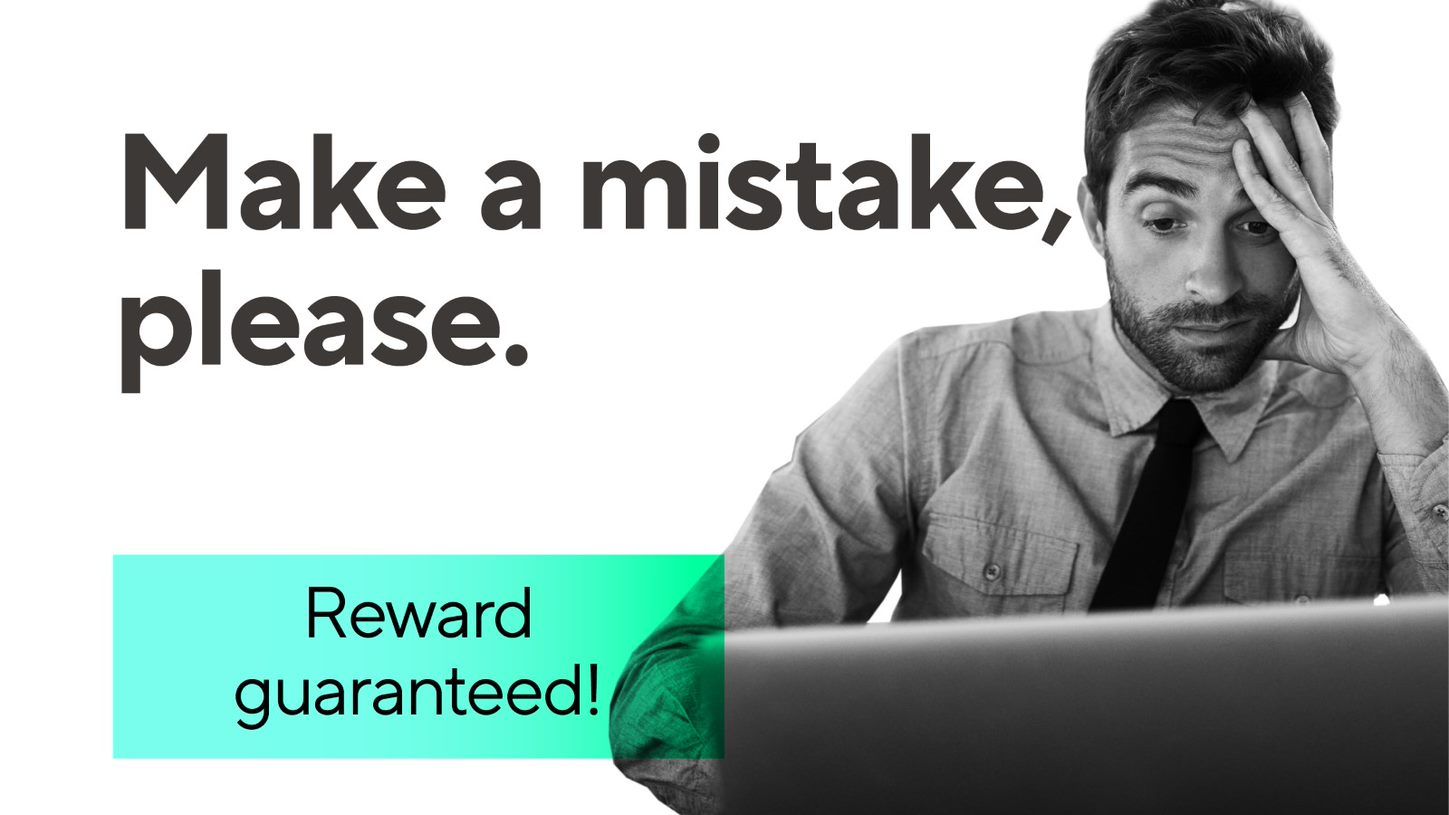
First of all – everybody makes mistakes. Humans because of their nature, machines because of their non-nature. The only way to not make any mistakes? To never do anything. To stay completely still. But then, you can’t learn anything or make progress, either.
A strange phenomenon over the past few years is that of ‘F*ck-up Nights’ hosted by senior people who share their experience about the mistakes they have made on their journey to the top. The logic is simple: learning from someone else's mistakes allows you not to repeat them yourself.
But making your own mistakes can open a totally new chapter in your career - especially when people around you (including your boss) are able to look at it through a lens of learning and positivity. Mistakes can open the door to innovation, insight and breakthrough results. Sometimes you win, sometimes you learn.
Critical feedback is the best feedback
It’s nice to hear praise, but as the best customer support people will tell you: you can’t learn and improve on positive feedback alone. Many companies reward constructive (or ‘negative’, provided it’s helpful) feedback to encourage them to share the things that could be improved, however large or small.
This type of feedback gives you direction for change, inspires creative thinking and can even give rise to new directions for a business. Even the most successful companies have disappointed customers and made poor strategic choices. But they are successful because they took these opportunities to learn and made something of them.
Fail fast and learn quick
Of course, young companies, small businesses and start-ups have more freedom to try out different approaches – and as a result, make mistakes and failures faster and learn from them faster as well.
The new format you’ve designed for social media doesn’t work? Change it!
People better react to only two colours in your bag collections? Limit the colour range!
We at Kelly have recently hosted a great career event – the first of its kind for the industry. We had great plans, big ambitions. No, we didn’t fail (quite the opposite!) but many things did not go as planned and we had to learn on the fly from the situations. Now, we are quite confident that next year's event will bring us even better results. ‘Try-learn-move forward’ in action!
Fear of punishment – is it a trap?
How many great inventions have not happened because of the fear of punishment? We can only imagine.
When people make a mistake and try to hide it, it often leads to worse consequences further down the line. And think about what it does to your motivation! If you are told by your boss that no mistake will go unpunished, work suddenly becomes more stressful than ever.
Are your leaders open to mistakes?
Would your boss talk openly about lessons other employees can learn from your mistake, rather than making you feel bad or firing you? If yes, you’re in (a) good company!
Why great people talk openly about their mistakes
Mistakes teach valuable lessons, especially in the business world, and it takes embracing mistakes as learning opportunities to grow and see future success.
All great leaders - modern and historical - speak about their mistakes in books, articles and interviews. Great sportspeople, too; every mistake they make teaches them how to improve by 1%. All of their mistakes combined are what makes them the best at what they do.
And just like in sports, at work you cannot become a better version of yourself with falls, failures and mistakes teaching you how to become a little better each time.


CONTACT US
Kelly Services Luxembourg Sàrl
7/11, Route d’Esch
L-1470 Luxembourg
+352 46 62 66 1
luxembourg@kelly-services.lu
How can we help you? Go to the Customer Support


